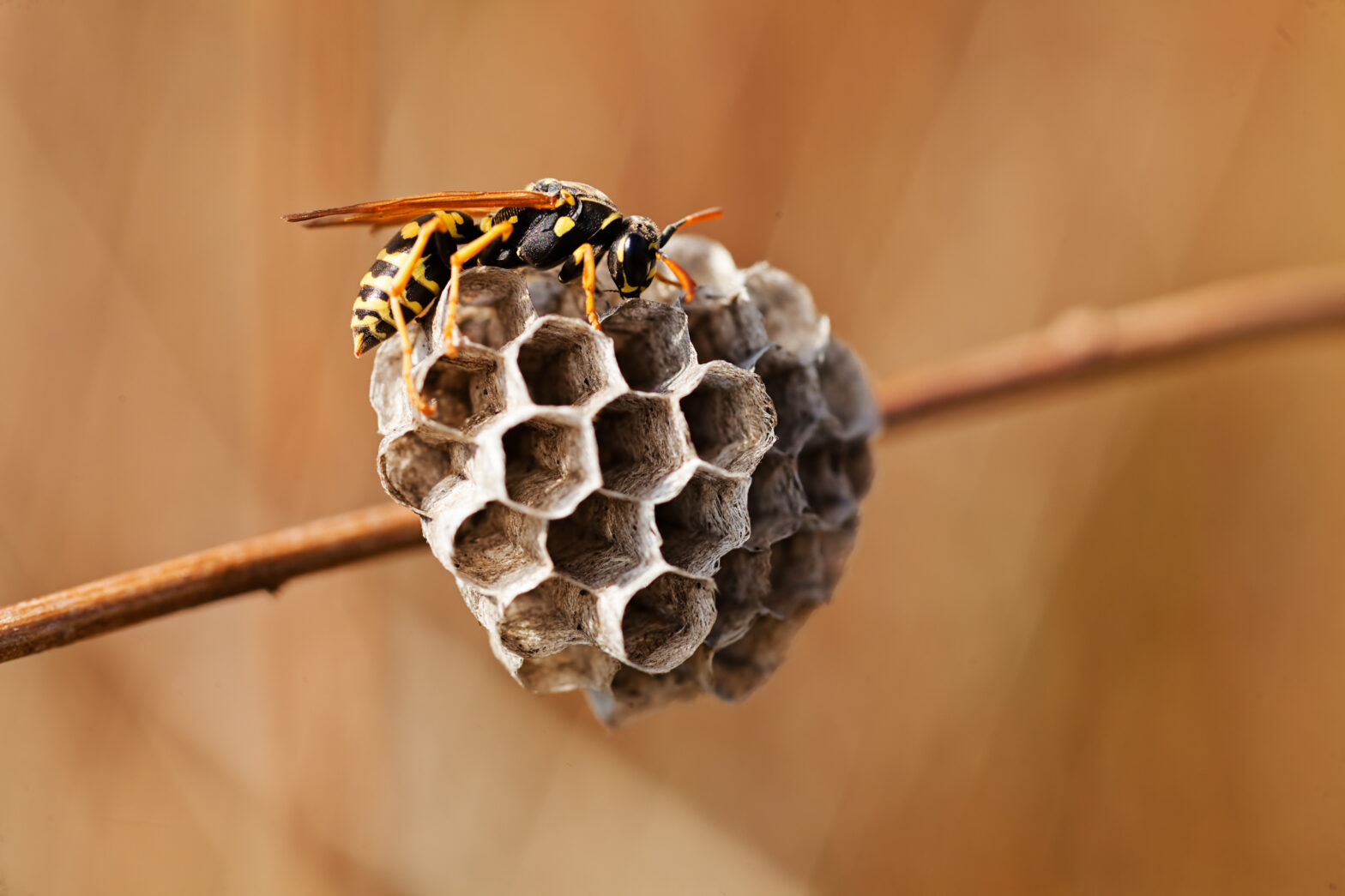Late Summer Wasps & Yellowjackets: Why DIY Nest Removal Is Risky
Why Wasps Are More Active in Late Summer
By late summer, wasps and yellowjackets are at their buzziest. Their colonies are at full size, meaning more wasps buzzing around—and more chances of running into them.
As natural food sources dwindle, wasps start searching elsewhere. Unfortunately, that often brings them right to our picnics, barbecues, and outdoor spaces.
Around this time, the colony’s queen stops laying eggs, and the wasps enter their mating season. Males take flight in search of future queens (known as “foundresses”) who will survive the winter and start new colonies the following spring. All the other wasps in the colony will die off once colder weather arrives.
Did you know? Male wasps can’t sting! Only females have stingers.
Common Nest Locations Around Homes
Spring is prime time for wasps and yellowjackets to start building nests, and they’re pretty creative about where they do it. The exact spot usually depends on the type of wasp.
Some yellowjackets like to move underground into old rodent holes, while others prefer hanging their nests up high. Paper wasps are the ones you’ll often see under roof eaves, inside wall gaps, or tucked around sheds and decks. No matter the species, these nests can be surprisingly close to where you and your family spend time, which makes knowing where to look that much more important.
Risks and DIY Removal: What Homeowners Should Know
Risks of Stings
Nobody likes getting stung—but with wasps, it can get serious fast. Stings are painful on their own, and for people allergic to insect venom, even one sting can trigger severe reactions like anaphylaxis, which requires immediate medical attention. Even without allergies, multiple stings can cause pain, swelling, and infections.
Understanding the risks—and taking precautions—is essential.
DIY Wasp Nest Removal: Why It’s Risky
It might be tempting to grab a can of spray and handle a nest yourself, but the risks usually outweigh the reward. Wasps don’t take kindly to people disturbing their nests—and how aggressive they are depends on the species. Paper wasps are calmer but build nests high in hard-to-reach places. Ground wasps? They’re just plain mean. Disturbing a ground nest without the right protective gear can lead to a swarm in seconds.
Over-the-counter sprays might seem like a quick fix, but they often fall short. Many products don’t reach the heart of the nest, and their limited spray range makes it tough to treat nests tucked in hidden spots. Even if you “hit” the nest, part of the colony may survive and rebuild.
Picture this: you’re on a ladder trying to spray a nest tucked under your roofline. Suddenly, dozens of angry wasps pour out—not only are you dealing with painful stings, but you’re also trying to get down safely. It’s a recipe for disaster.
Pro Tip: Always leave wasp nest removal to trained professionals—they have the right tools and know-how to do it safely.
Professional Wasp Removal: Safe, Effective, and Stress-Free
When it comes to wasp nest removal, professionals know exactly what they’re doing. Experts like those at Saela use specialized tools and techniques to safely remove nests, so you don’t have to risk getting stung.
The process starts with identifying the species and pinpointing the nest. Then, the right treatment is applied to ensure the entire colony is removed. Professionals don’t just stop there—they also inspect your property for spots where wasps might try to build again and share tips for keeping your yard and home wasp-free.
Imagine enjoying a weekend barbecue without constantly swatting away wasps or worrying about a nest hiding somewhere nearby. That’s the peace of mind professional wasp nest removal provides.
Prevention Tips to Avoid Future Nests
The best way to deal with wasps is to stop them before they move in. You can make your home less inviting with a few simple steps:
- Seal cracks and gaps in walls and eaves
- Keep outdoor food and sugary drinks covered
- Clean up spills promptly
- Have routine pest control services
Professionals can spot potential nesting sites before a colony ever sets up shop, giving you peace of mind all season long. With these precautions, you can enjoy your backyard without worrying about uninvited stingers.
